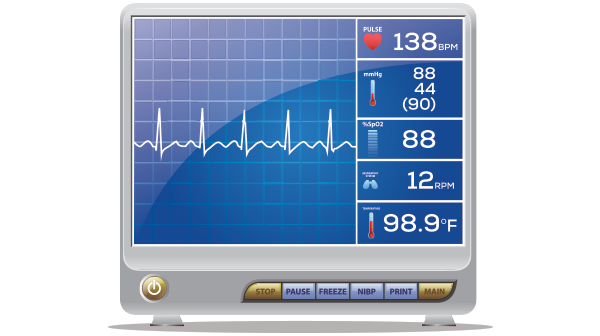
In some very ill patients, it may be necessary to avoid intubation if at all possible. I recently had a patient in complete heart block with hypotension from an anterior-inferior ST-segment elevation myocardial infarction. With pacing and vasopressors, she arrived to the cath lab in time, and intubation was completely avoided. In hindsight, I think she would not have tolerated the hemodynamic consequences of intubation.
Explore This Issue
ACEP Now: Vol 34 – No 08 – August 2015As the bar of practice in emergency airways continues to be raised, as we are more and more becoming critical care doctors (by default, the way our EDs are running), it’s important to expand our perspective. Placing plastic in the trachea is but one part of our critical care responsibilities. Along with optimizing oxygenation prior to intubation (nasal oxygenation, DSI, ketamine assisted intubation, etc.), assessing Shock Index is helpful in identifying patients who need resuscitation sequence intubation, not rapid intubation.
References
- Weingart SD, Trueger NS, Wong N, et al. Delayed sequence intubation: a prospective observational study. Ann Emerg Med. 2015;65:349-355.
- Calder I, Yentis SM. Could ‘safe practice’ be compromising safe practice? Should anaesthetists have to demonstrate that face mask ventilation is possible before giving a neuromuscular blocker? Anaesthesia. 2008;63:113-115.
- Warters RD, Szabo TA, Spinale FG, et al. The effect of neuromuscular blockade on mask ventilation. Anaesthesia. 2011;66:163-167.
- Heffner AC, Swords DS, Neale MN, et al. Incidence and factors associated with cardiac arrest complicating emergency airway management. Resuscitation. 2013;84:1500-1504.
Pages: 1 2 | Single Page





One Response to “Timing Resuscitation Sequence Intubation for Critically Ill Patients”
August 30, 2015
Tim Leeuwenburg…and don’t forget the many other modifications to the traditional RSI approach as described by Stept and Safar many moons ago
Times change – and we need to understand how modifications to RSI are necessary in the critically unwell – and to back this up with consensus statements to avoid post hoc criticism or medicolegal opinion from ‘experts’ who are usually confined to the Operating Theatre
Have a look at this for starters. Getting an international consensus guideline on airway management and DSI-RSI in critically unwell would be useful…
http://www.criticalcarehorizons.com/airway-management-of-the-critically-ill-patient/